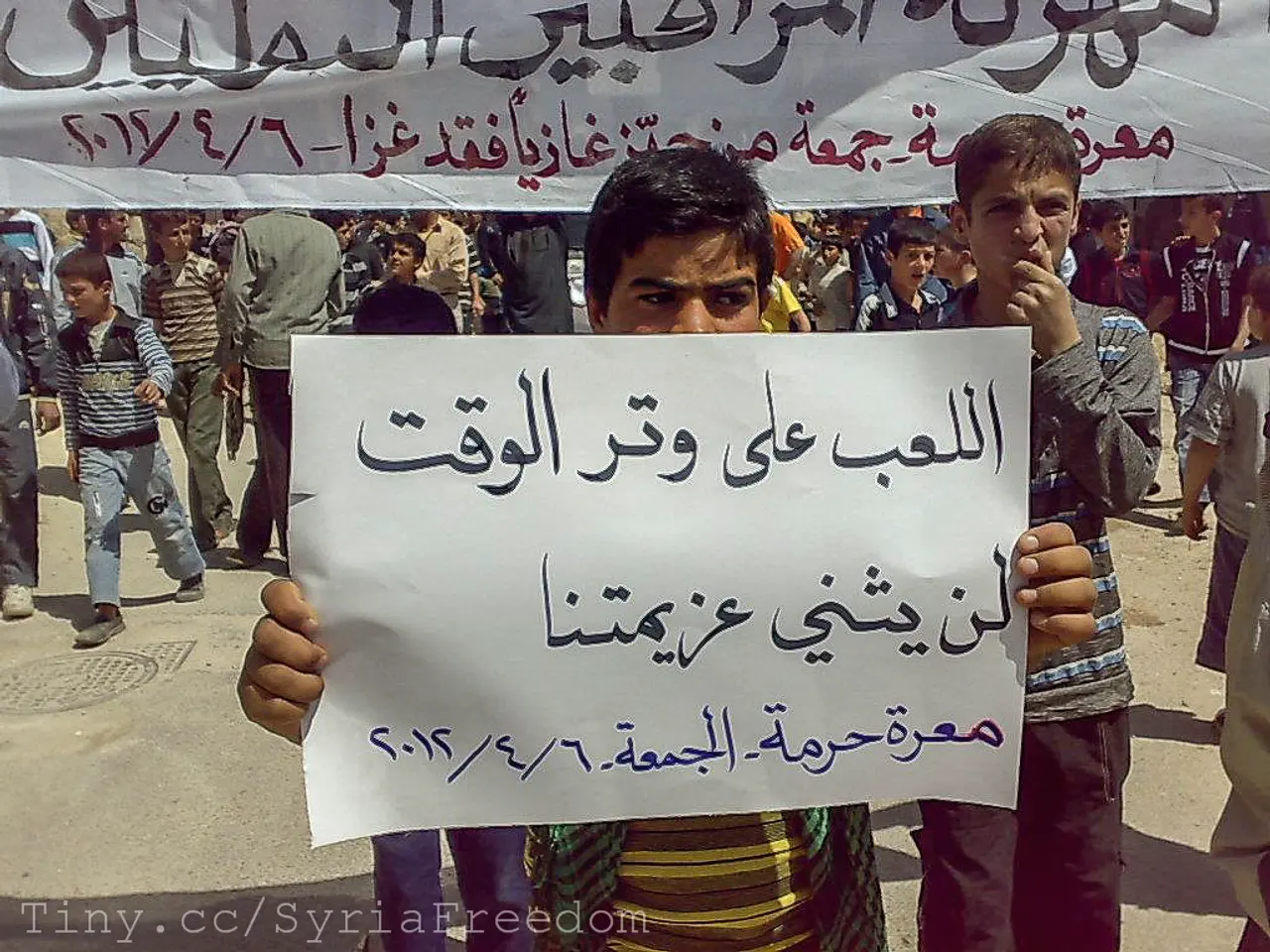Trump's contentious executive order incites public demonstrations in Washington
In a controversial move, US President Donald Trump invoked Section 740 of the District of Columbia Home Rule Act on August 11, 2025, to place Washington, D.C.'s Metropolitan Police Department under direct federal control and deploy the National Guard and federal law enforcement agencies in the city.
Background and legal basis:
The legal authority Trump cited, Section 740 of the Home Rule Act, permits the President to take command of D.C.'s local police "in conditions of an emergency nature." The federal takeover was limited to a maximum of 30 days unless Congress authorized an extension.
Trump also deployed National Guard troops from D.C. and cooperating states, alongside federal law enforcement from agencies like the Department of Homeland Security and FBI. However, official city and federal crime data indicate a downward trend in crime rates, raising questions about the justification for this action.
Legal and policy implications:
The surge of federal forces in D.C. has prompted questions about potential violations of the Posse Comitatus Act, which limits the use of military forces in domestic law enforcement. Experts and watchdog groups raised concerns that fluctuating local crime does not legally constitute an emergency justifying federal takeover. Critics warned such federal interventions risk escalated and aggressive policing practices with limited oversight and accountability.
Reception by opponents and local authorities:
Local D.C. leaders objected strongly, arguing Trump exaggerated the city's crime problems to justify overreach into local governance. The mayor and police department declined public comment amid escalating tensions and an ongoing federal investigation into whether local officials falsified crime data—a probe that could potentially support or undermine Trump's "emergency" claims.
Opponents charged that Trump's actions represented an abuse of power that threatens public safety and undermines home rule for the District. The federalization and troop deployments have disrupted daily life in diverse D.C. neighborhoods, reducing street activity and instilling fear among residents, particularly immigrant communities.
Protests and Political Fallout:
Protests against Trump's decision to place the police under federal control and deploy soldiers in Washington are being organized. Without the consent of both chambers of Congress, the federal control can remain in place for a maximum of 30 days, after which a vote is required. The lack of coordination with Democratic Mayor Muriel Bowser before Trump's announcement regarding the deployment of troops and the cooperation between local and federal authorities has also been a point of contention.
This move by President Trump has been met with criticism and concern, with some comparing it to fascist tactics. As the situation unfolds, the implications for democratic governance, community relations, and the rule of law in Washington, D.C., remain uncertain.
[1] White House Press Release, August 11, 2025. [2] The Washington Post, August 12, 2025. [3] The New York Times, August 13, 2025. [4] CNN, August 11, 2025. [5] NBC News, August 14, 2025.
- The move by US President Donald Trump to place Washington, D.C.'s Metropolitan Police Department under federal control has sparked discussions in the realm of politics, policy-and-legislation, and crime-and-justice, as it raises concerns about potential violations of the Posse Comitatus Act.
- General-news outlets have covered the incidents extensively, reporting on the protests in progress, the ongoing federal investigation into local officials, and the strain on community relations caused by the surge of federal forces in D.C.
- War-and-conflicts, while not directly related to this situation, may become a relevant topic of discussion as opponents compare Trump's actions to fascist tactics, underscoring the broader implications for democratic governance.








